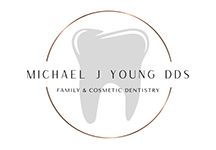 By the age of 39, approximately 86.7% of adults in the United States have had at least one instance of tooth decay in their permanent teeth. By the age of 59, that number jumps to 95.1%. Because cavities are such a common occurrence, many people are lulled into believing that tooth decay is a normal, natural occurrence. Live long enough, and your teeth will decay, they believe. The truth, however, is that your teeth were not meant to sustain decay, and you should not accept tooth decay with a laissez-faire attitude simply because it occurs frequently. Lafayette dentist Dr. Michael Young explains tooth decay, the dangers it poses to your oral health, and the steps you can take to help prevent it.
By the age of 39, approximately 86.7% of adults in the United States have had at least one instance of tooth decay in their permanent teeth. By the age of 59, that number jumps to 95.1%. Because cavities are such a common occurrence, many people are lulled into believing that tooth decay is a normal, natural occurrence. Live long enough, and your teeth will decay, they believe. The truth, however, is that your teeth were not meant to sustain decay, and you should not accept tooth decay with a laissez-faire attitude simply because it occurs frequently. Lafayette dentist Dr. Michael Young explains tooth decay, the dangers it poses to your oral health, and the steps you can take to help prevent it.
What is Tooth Decay?
Tooth decay, which leaves holes in your teeth called cavities, begins when organic acids attack your teeth. Some foods and beverages are naturally acidic, while others contain nutrients (such as sugar and starches) that oral bacteria consume and convert into acid. These acids attack your tooth enamel—the protective outer layer of your tooth’s crown (top, visible part of your tooth). While enamel is the hardest substance your body produces, it is also the most mineralized and consists entirely of minerals such as calcium and phosphate. When acids attack, they weaken tooth enamel and sap enamel-building minerals from your teeth, eventually rendering the substance too weak to protect the tooth against bacteria. Once past the enamel, bacteria can easily irritate and infect the interior of your tooth.
Is Tooth Decay That Serious?
Dentin, the layer of tooth tissue under enamel, contains small tubules that feed sensory information to the bundle of nerves and blood vessels that rest in your tooth’s pulp (the center of your tooth). The discomfort and sensitivity associated with tooth decay can often be felt when bacteria reach this tissue. If unchecked, the infection will continue towards the center of your tooth. If the pulp becomes infected, the discomfort can become extreme, and may require root canal treatment. In extreme cases, tooth extraction may be necessary to prevent the infection from spreading to other teeth.
How Can I Prevent Tooth Decay?
Unfortunately, the oral bacteria that are mainly responsible for tooth decay continually inhabit the mouth, and permanently eradicating them is not a possibility. However, you can protect yourself from decay by limiting the bacterial population, thereby reducing the amount of acid produced. Brushing and flossing your teeth daily helps prevent excessive bacterial accumulation. Also, rinsing your mouth with water after eating (when brushing your teeth is not possible) can neutralize the acid from your recent meal. A professional dental checkup and cleaning, which you should attend at least once every six months, can help Dr. Young spot signs of decay and treat it early, before it advances.
If you live in the 70508 area and would like to learn more about tooth decay, or want to schedule an appointment with Dr. Michael Young, call our Lafayette dentist office at (337) 237-6453.

